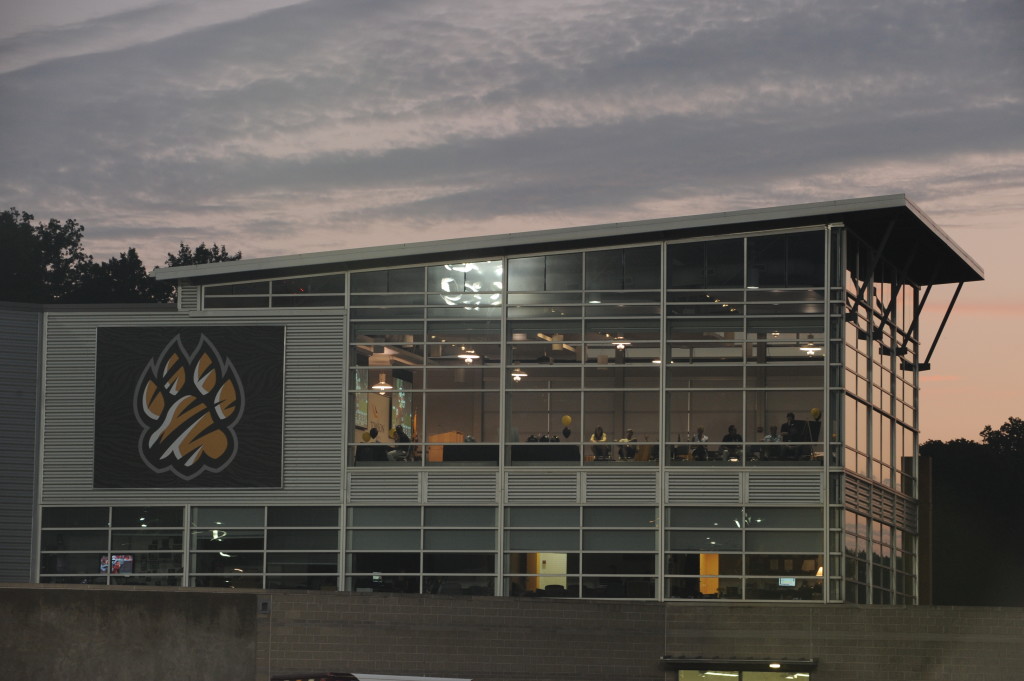 Towson University has reduced campus energy consumption by 13 percent since 2010, earning high praise from the U.S. Department of Energy (DOE) at the annual Better Buildings Challenge Summit held last month in Washington, D.C.
Towson University has reduced campus energy consumption by 13 percent since 2010, earning high praise from the U.S. Department of Energy (DOE) at the annual Better Buildings Challenge Summit held last month in Washington, D.C.
TU is ahead of schedule in meeting its Better Building Challenge goal of reducing energy by 20 percent by the year 2020.
TU was invited to share accomplishments in energy efficiency with universities from across the country during a roundtable presentation at a national summit attended by more than 900 participants.
“It was a proud day for TU,” said Energy Manager Steve Kolb. “We were sitting at the table with energy professionals from many of the top universities around the country, and we were asked to share details of our successes so others could learn how to implement them. It was quite impressive to have Towson University shine at such a prestigious event.”
The reduction of the energy intensity of TU’s Johnny Unitas Stadium Field House was one of the solutions discussed at the summit and also showcased on the DOE Better Buildings website. The installation of high-efficiency boilers and hot water heaters as well as a heat recovery coil, variable speed supply and exhaust fans and occupancy sensors have led to an estimated 37 percent reduction of energy use in the building over the past year. This translates to annual energy cost savings of nearly $100,000.
“As the Better Buildings Initiative enters its fourth year, leaders continue to showcase how saving energy saves money, creates jobs, and most importantly, accelerates the nation’s competitiveness in the clean energy economy while preserving our environment for generations to come,” said U.S. Energy Secretary Ernest Moniz.
As part of the President’s Climate Action Plan, the Better Buildings Challenge aims to double American energy productivity by 2030. More than 250 organizations are partnering with DOE to achieve 20 percent portfolio-wide energy savings and share successful strategies that maximize efficiency over the next decade.
Get more information on Towson University’s energy conservation efforts at www.towson.edu/sustainability. To learn more about the Better Buildings Challenge, visit www.energy.gov/betterbuildingssolutioncenter.
